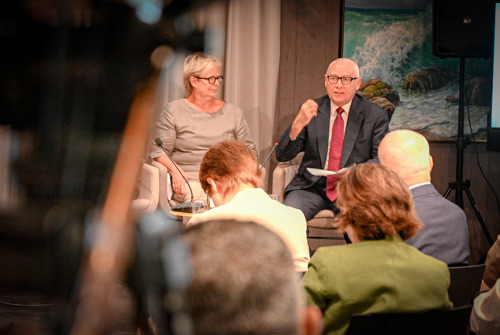
Speech by the Parliamentary Ombudsman of Malta during the international conference 'National and International Structures to Protect Human Rights: Good Practices and Lessons Learnt - Tirana, Albania
Published June 25, 2025
Speech by the Parliamentary Ombudsman of Malta during the international conference 'National and International Structures to Protect Human Rights: Good Practices and Lessons Learnt - Tirana, Albania
Published June 25, 2025

The Parliamentary Ombudsman of Malta, Judge Joseph Zammit McKeon, represented the IOI European Regional Board, in his capacity as its Director, and also participated as Secretary General and Treasurer of the Association of Mediterranean Ombudsmen (AOM).
My very warm and sincere congratulations to the Office of the People`s Advocate of Albania on the occasion of its 25th Anniversary. A special well done and thank you to colleague and friend Erinda Ballanca. Keep up with the good work.
The merits
Malta is 1 of 10 (from a total of 46) Member States of the Council of Europe and 1 of 2 (from a total of 27) Member States of the European Union that does not have a National Human Rights Institution (NHRI) compliant with the Paris Principles of the United Nations.
It is my strong belief that in the case of Malta, the Office of Ombudsman should be the institutional structure with the mandate to act as NHRI, rather than opt for the constitution anew of a human rights commission or a specialised commission.
On this matter, the Office has taken a proactive approach. The Office believes, as it did in the past way back in 2013, that the setting up of an NHRI in Malta consistent with the Paris Principles is vital for the good of the country, not only for the promotion, monitoring and observance of human rights as they result in the Universal Declaration of Human Rights of the UN, in the Constitution of Malta, in the European Convention for the Protection of Fundamental Rights and Freedoms of the Council of Europe, and in the Charter of Fundamental Rights of the European Union, but to be prepared for the challenges that the risk of new violations arising, but not only, from economic and political migration, climate change and population aging.
In 2024, the Office not only proposed to the Prime Minister of Malta himself the setting up of an NHRI by extending the mandate of the Ombudsman, thereby avoiding the need to create from scratch a separate institution, but also actually drafted, with the assistance of experts, a New Ombudsman Bill, where the dual functions of Ombuds and NHRI were given a legal structure to work and operate together, even as far as funding is concerned, not only with an independent statutory role, but were also given a legally entrenched protective constitutional structure that the Constitution of Malta already gives to the Ombudsman in his investigations of administrative justice. The Bill was presented to the Prime Minister of Malta himself for his consideration and of the Cabinet of Ministers, and published in its entirety on the website of the Office of the Ombudsman. There was no reaction from Government.
So much as far as Malta is concerned.
On a transnational level, the lesson of history is that transparent, responsible, accountable and participatory governance is a prerequisite to ensure the defence of human rights. Good governance needs to aim for justice. The rule of law and independent institutions like the Ombudsman are essential components of good governance. In today`s world, the protection of human rights cannot rely on aspirations or unfulfilled promises. The respect of human rights can only have a meaning if people care, and people will care if rights can be enjoyed in a practical sense and with the least possible harm.
The responsibility for the protection of human rights on the domestic level lies with governments. That is why we speak of human rights action planning and there is eagerness to have a global network for all to participate and share in experiences. The initiative undertaken on this matter during the current month by Dr Azadeh Chalabi, Senior Lecturer at the School of Law and Social Justice of the University of Liverpool is not only commendable but should be encouraged with determination.
On their part, Governments cannot simply pay lip service to human rights protection, but have an obligation to establish national human rights machinery, including favouring human rights institutions while strengthening existing governmental and non-governmental mechanisms which play a role in human rights, giving civil society a significant role in promoting, protecting and monitoring human rights by seeking their expertise not ignoring their existence, and building by example a culture of human rights through all levels of society.
I conclude with a personal consideration on the European Convention for the Protection of Human Rights and Fundamental Freedoms and the role of the European Court of Human Rights. The Convention has been “a living instrument” since inception. The authoritative process of interpretation given by the Court over the years to the provisions of the Convention have tangibly made the Convention all the more “a living instrument”. The Court does not require any reminder of any sort from politicians. Whether they endorse the rulings of the Court or not is another matter. Through its pronouncements, the Court has managed not only to give substance to the effective protection of human rights but has ensured the application and observance of the rule of law and democratic principles.
Thank you.
Please Wait
Processing
Operation Completed